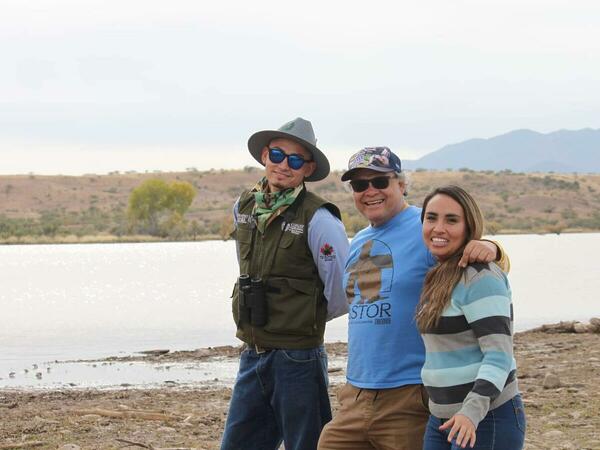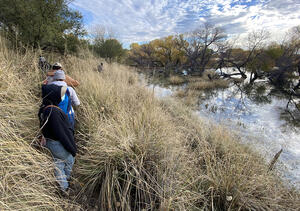For a grassroots non-profit like WMG, the end of the year means we need to fundraise so that we can power our work in the new year. Our goal is to raise $100,000 by January 1st, and we're already over halfway to our goal! Can you help us help nature do its work with a donation today?
 When you donate to WMG today, you fund hydro-local and nature-based solutions. We love letting nature do its work—whether it’s capturing rainwater to grow shade trees, using green infrastructure to keep pollution out of our creeks, or letting beavers restore our wetlands. We can learn from and steward nature to ensure we have clean, local water supplies and a healthy environment.
When you donate to WMG today, you fund hydro-local and nature-based solutions. We love letting nature do its work—whether it’s capturing rainwater to grow shade trees, using green infrastructure to keep pollution out of our creeks, or letting beavers restore our wetlands. We can learn from and steward nature to ensure we have clean, local water supplies and a healthy environment.
Key to our river restoration work is better understanding and supporting beavers. Known as “nature’s architects,” beavers are masters at slowing down river flow, sinking and recharging groundwater, and creating critical wetland habitat for our desert ecosystems. Since beavers were exterminated from the San Pedro River in the late 1800's, their population has grown, expanded into Mexico, and then shrunk in numbers in the U.S., and we want to understand why so that we have the information we need to bring beavers back long-term.
That's why this fall we launched the first-ever Binational Beaver Survey to assess the number of beavers along the San Pedro River and its tributaries in southern Arizona and Sonora, Mexico, and the good news is we’re seeing active beaver evidence in many locations! WMG staff and volunteers have been hiking many miles of the river identifying evidence of beaver activity—check out this video from the beaver survey group that WMG's Executive Director Lisa Shipek led on November 20th.
 Beaver survey partner Gerardo Carreon, Biologist at Naturalia A.C. based in Sonora, Mexico shared, “It is great to discover and share together the habitat of the architects of the landscape: the beavers! It is my hope that this will be the first of many binational beaver counts.”
Beaver survey partner Gerardo Carreon, Biologist at Naturalia A.C. based in Sonora, Mexico shared, “It is great to discover and share together the habitat of the architects of the landscape: the beavers! It is my hope that this will be the first of many binational beaver counts.”
We look forward to sharing our final count of the beaver population on both sides of the border in January, once we have tallied all of our survey results. Thank you for supporting this work and our other hydro-local efforts!





